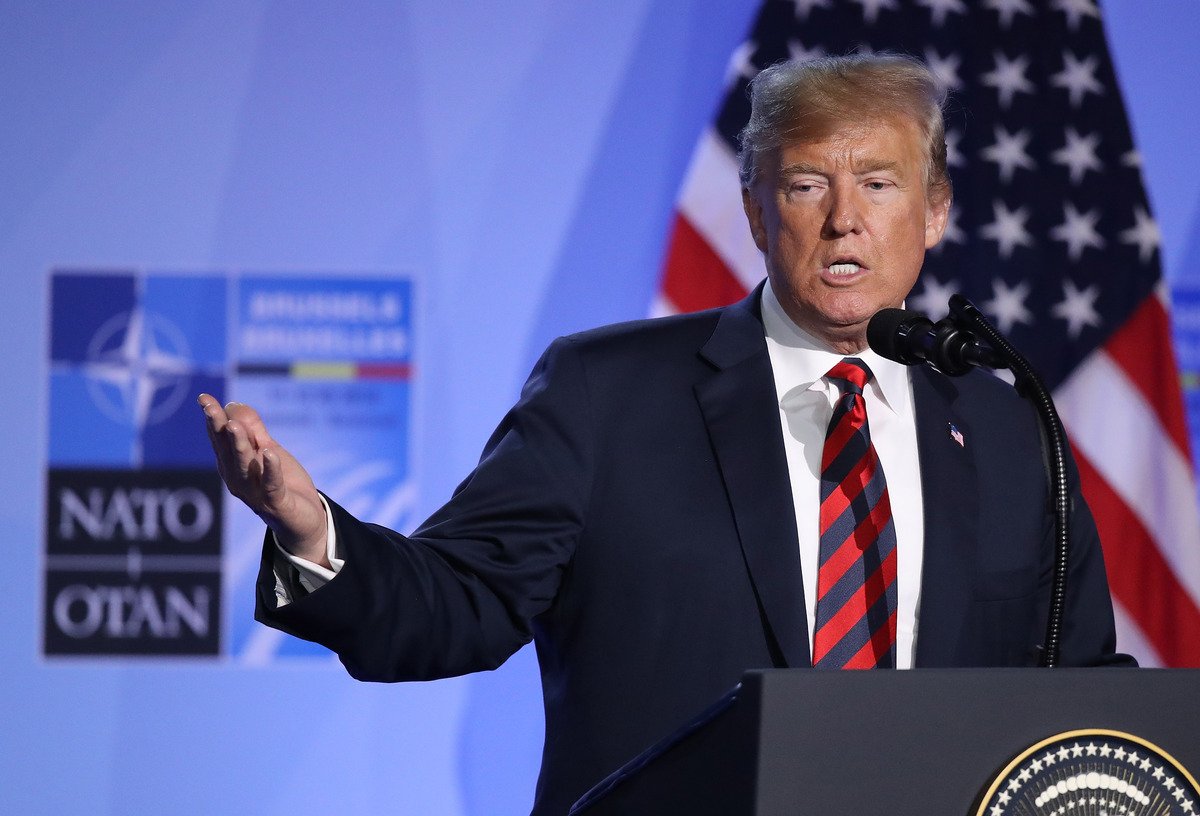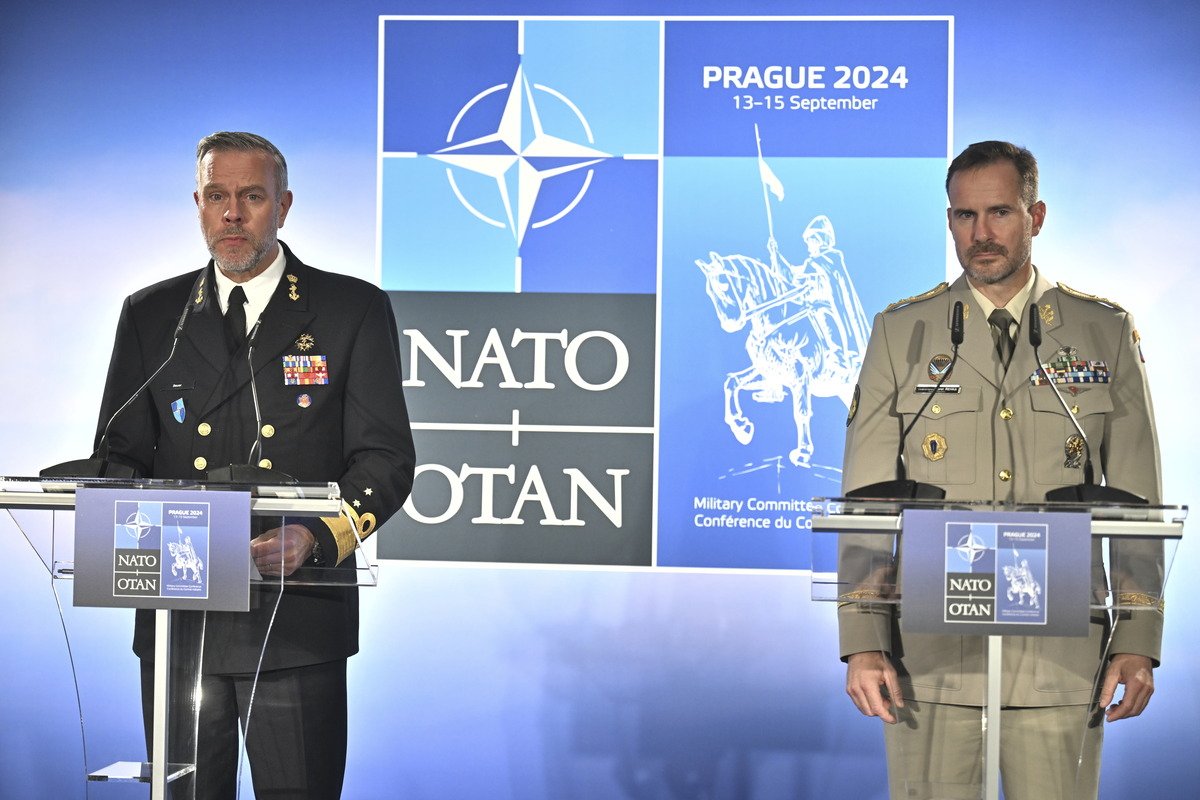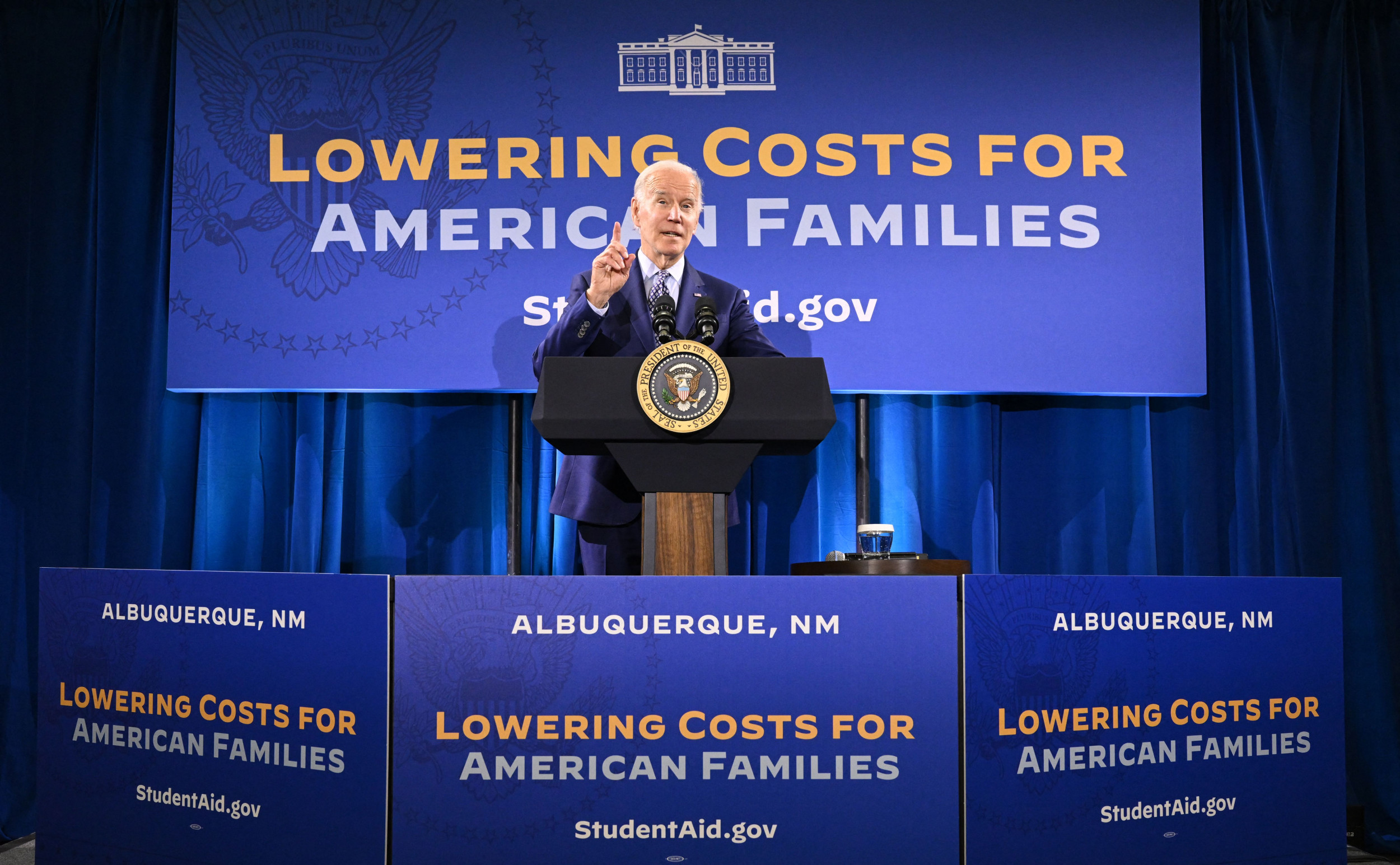President-elect Donald Trump was justified in his criticism of NATO's European members who have let defense spending fall by the wayside, the alliance's military chief has told Newsweek.
The remarks from outgoing NATO military committee chief Admiral Rob Bauer came as countries across the continent pledge to dramatically up investments in the military, in the shadow of the U.S. Republican leader's second term, and worrying questions over Russia's plans.
Speaking to Newsweek on the sidelines of the IISS Prague Defense Summit in the Czech Republic, Admiral Bauer said Trump had lambasted countries that had not invested in their own armed forces for too long and that these nations "probably thought that if they were attacked, they would be rescued by the United States."
"I think that critique was fair," said the Dutch admiral.
He also said the discussion might move on from the percentage each NATO member pays, to focus on the funding actually needed to achieve the alliance's aims.
Trump has for years been deeply critical of NATO.The New York Times reported in early 2019 that he had privately said "several times" the previous year that he wanted to pull the U.S. out of the alliance. Although not expected to do so once he steps back into the Oval Office from January, officials in Europe are bracing for firm demands on how much of their gross domestic product is funneled into the military.
Newsweek has emailed Trump's team for comment.

The U.S, with its extensive military and nuclear weapons stockpiles, is the most powerful member of NATO, and Washington, D.C. has traditionally shouldered much of the burden for providing some of Europe's vital capabilities, including space-based intelligence and logistics.
Czech President Petr Pavel, a retired general and former NATO military committee chief, said on Friday that Europe was always going to have to shore up their own defenses, but "with President Trump, we will probably have to do it faster."
"It was a very, very legitimate discussion to be had," Bauer said of public comments from the President-elect and the readiness of NATO's European militaries. "We needed that push as nations," he said, especially in the context of the war in Ukraine.
Bauer, began his distinguished role as Chairman of the NATO Military Committee in June, 2021. He has spearheaded the strengthening of Europe's defenses since the Russian invasion of Ukraine in 2022, especially by helping to secure Finland and Sweden's membership of the alliance. During his time in charge, four new battlegroups were formed and deployed in Romania, Slovakia, Bulgaria, and the Czech Republic, and he oversaw the expansion of NATO's rapid reaction forces from 40,000 troops to as many as 300,000.
Bauer also marshalled the multiple donations of weapons, ammunition, equipment, and supplies to Ukraine from member nations, and was committed to encouraging alliance members to pay their fair share.
There is an increasing sense that this change of attitude and willingness to pay up isn't just coming from Washington, but from the NATO capitals dotted across Europe, too.
"If the leader of the country says that the biggest priority for him or her is the well-being of their citizens, that's quite normal, right?" said Lieutenant General Karel Řehka, the chief of the general staff for the Czech armed forces. Prague's leadership would also be expected to put its country first, Řehka told Newsweek.
"Should we be shocked by someone proposing that we should have fair burden sharing? No," Řehka added. "Should we do more as Europeans for our own security?" he asked. The answer, he said, is yes.
Estonia's defense minister, Hanno Pevkur, told Newsweek that remarks from the President-elect in the past had been "disturbing," but that he was "not so pessimistic as many are."
Earlier this year, Trump appeared to condone Russian attacks on NATO members who he said were falling short of their contributions to the alliance. The Biden administration denounced the comments as "appalling."
"Any suggestion that allies will not defend each other undermines all of our security," added then-NATO secretary-general, Jens Stoltenberg.
Each NATO member is asked to dedicate 2 percent of the country's GDP to defense. For years, many nations had not met this threshold, which is not enforced by the alliance. Now, roughly two thirds of countries will likely reach 2 percent by the end of the year.
"Trump used the term, you have to pay up," Bauer said. "That's not, 'maybe, the term'," he added. But the "message has come across" and propelled more countries toward the 2 percent mark since the end of Trump's previous time in the White House, Bauer said.
"In many ways, we can say to him: 'Welcome back, Mr. President, and, basically, a lot of nations have listened to you and have understood the message and are now investing in their own defense, which is what everybody should do'," Bauer said.

"There's still work to be done," he added, but "we are in a much better position than we were when he left."
In the NATO treaty, the key clause is Article 5, which outlines that an attack on a member state is considered an attack on all. But, perhaps equally importantly, Article 3 states that NATO countries must "maintain and develop their individual and collective capacity to resist armed attack."
Talks with the President-elect from January will likely not focus on any chatter about the U.S. pulling out of NATO, Bauer said. "That was a theme for a while, but I don't think that is the case anymore."
The thread may move away from just spending 2 percent on defense, and look more at "paying the amount of money that is necessary to be able to achieve everything we have agreed to," Bauer added.
He is optimistic that NATO's members can rise to the challenge. The more than two and a half years of war in Ukraine have marked the worst point in relations between many Western countries and Russia in decades, with senior officials increasingly sounding the alarm over whether Moscow could move against NATO territory in a world after the Ukraine war.
Russia's defense spending is astronomical, its industry mobilized to prop up the war effort. But taken together, the total GDP of NATO's members is 20 times Russia's, said Řehka. "So yes, we are capable of doing it, but it requires the will and leadership," he said. "So if there is a political will, everything is possible, but things will have to change, because the industrial capacity will have to grow and the money will have to be invested."
The domestic politics can be tough. Elected officials across NATO are accountable to their citizens, not least for the funds they'll need to stump up to redirect into defense.
"It will not necessarily be easy for a lot of nations to have a discussion in their own nation about spending more than now a minimum of 2 percent," Bauer said.
There is enough money to go around and enough time to make a difference, he said. But it is a "question of prioritization."
"So far, there is not enough sense of urgency to do it," he said. "That's the frustration that I feel."










![SOURCE SPORTS: [WATCH] Mets Capt. David Wright Gives Interesting Insight On The Honor Of His Jersey Retirement In Citi Field](https://thesource.com/wp-content/uploads/2025/01/01fs75fy836w8mp4ytwr.webp)









 English (US) ·
English (US) ·